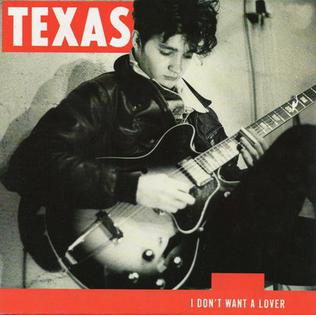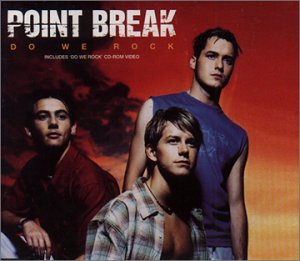
"Strange Relationship" is the second solo single released by Australian singer Darren Hayes from his debut studio album, Spin (2002). The single was released in May 2002 and made it into the top 40 in Australia, Sweden, and the United Kingdom. The music video was directed by Tommy O'Haver; it features Hayes moving around a film set with a number of other people and changing scenery.

"How Can We Be Lovers" is a song written by Michael Bolton, Diane Warren, and Desmond Child and performed by Bolton. Released as the third single from Bolton's sixth studio album, Soul Provider (1989), it peaked at number three on the US Billboard Hot 100 and number 10 on the UK Singles Chart in May 1990. The song also reached number two in Canada, number three in Australia, number 10 in Sweden, and number 18 in Ireland.

"To the Moon and Back" is a song by Australian pop duo Savage Garden, released in Australia on 4 November 1996 as the second single from their self-titled 1997 album. It was the follow-up to their first hit "I Want You", and won the 1997 ARIA Music Award for Song of the Year. The song became the band's first number-one single in their native country, reached number three on the UK Singles Chart, and peaked at number 24 on the US Billboard Hot 100.

"I Don't Want a Lover" is the debut single of Scottish band Texas, taken from their first album, Southside (1989). The music starts with blues slide guitar followed by a throbbing rhythm section before the vocals break in. It was released in January 1989 and peaked at number 8 on the UK Singles Chart, and number 77 on the American Billboard Hot 100 in September 1989.

"Shower Your Love" is a song by English psychedelic rock band Kula Shaker. It first appeared on their second album, Peasants, Pigs & Astronauts, in March 1999 and was released as a single two months later. It reached number 14 on the UK Singles Chart.

"Govinda" is a song by British rock band Kula Shaker, released on their debut album, K (1996). Sung entirely in Sanskrit, the song includes Indian influences and tambura and tabla instrumentation. "Govinda" was issued as a single on 11 November 1996 and peaked at number seven on the UK Singles Chart.

"I Wouldn't Believe Your Radio" is the fourth single released from Welsh rock band Stereophonics' second studio album, Performance and Cocktails (1999), on which the song appears as the seventh track. The single was released in August 1999 and reached number 11 on the UK Singles Chart. A live version from Morfa Stadium is present on CD2 of the single. A version with Stuart Cable singing vocals can be found on CD1 on the "Hurry Up and Wait" single.

"Tell Me Why (The Riddle)" is a song by German DJ Paul van Dyk in collaboration with English indie dance band Saint Etienne, with Sarah Cracknell of the group on vocals. Released on May 8, 2000, the song peaked at number seven on the UK Singles Chart, giving both acts their highest-charting UK hit. A music video was made along with the song that can be found on the Global DVD.

"Like a Rose" is a song by British-Norwegian boy band A1. It was released on 21 February 2000 as the fourth single from their debut album, Here We Come (1999). The single peaked at No. 6 on the UK Singles Chart. The single was the final official single from the album; however, a follow-up promo single, "If Only", was released exclusively on 12-inch vinyl.

"Then You Turn Away" is a song by English electronic band Orchestral Manoeuvres in the Dark (OMD), released as the third single released from their eighth studio album, Sugar Tax (1991), on 2 September 1991. It peaked at number 50 on the UK Singles Chart the same month and also reached number 56 in Germany.

"Good Thing" is a song by British R&B girl group Eternal, released on 26 February 1996 by EMI and 1st Avenue as the third single from their second album, Power of a Woman (1995). The song was written by David Frank and Jeff Pescetto, and produced by Dennis Charles and Ronnie Wilson. It reached No. 8 in the United Kingdom and stayed in the top 100 for eight weeks. "Good Thing" was their seventh non-consecutive top-10 hit in the UK.

"The Ballad of Tom Jones" is a song by English band Space and Cerys Matthews, lead singer of Welsh band Catatonia. Lead singer Tommy Scott described Tom Jones as 'brilliant'. The song became a highly successful radio single, and resulted in Space performing with Jones in Jools Holland's' New Year's Eve television programme.

"New York City Boy" is a song by English synth-pop duo Pet Shop Boys, released on 22 September 1999 as the second single from their seventh studio album, Nightlife (1999). In the UK, the single peaked at number 14 on the UK Singles Chart. It also reached the charts in numerous European countries, peaking at number three in Spain, and number four in Finland and Hungary. In the US, the song hit number one on the Billboard Hot Dance Club Play chart and number 53 on the Billboard Hot Singles Sales chart.

"Sound of Drums" is a song by English psychedelic rock band Kula Shaker, released as the lead single from their second studio album, Peasants, Pigs & Astronauts (1999). With lyrics by frontman Crispian Mills and music composed by the whole band, the track takes musical inspiration from American rock band the Doors and received production from Rick Rubin and George Drakoulias, as Mills wanted the track to have a more "American" sound than their previous works. "Sound of Drums" was issued as a single on 20 April 1998 and debuted at number three on the UK Singles Chart the same month, becoming Kula Shaker's fifth and final top-10 hit in the United Kingdom.

"Little Black Book" is the fourth and final single from American singer Belinda Carlisle's fourth studio album, Live Your Life Be Free (1991). Released on August 17, 1992, it was Carlisle's first single containing a co-writing credit from her. American singer-songwriter Sheryl Crow performs the background vocals under the name "Cherryl Crowe". One of the single's B-side, "The Air You Breathe", was originally performed by Stéphanie in 1991 under the title "You Don't Die from Love".

"Everyday" is a song by English electronic band Orchestral Manoeuvres in the Dark (OMD), released as the third and final single from their ninth album, Liberator (1993). The track dates to 1987, with OMD co-founder Paul Humphreys – who left the group two years later – receiving a co-writing credit. "Everyday" was the only single from Liberator to miss the UK top 25, charting at number 59. The accompanying music video features Sara Cox, who would later be known as a BBC Radio DJ.

"Do We Rock" is a song by British pop group Point Break. It was released on 27 September 1999 in the United Kingdom through Eternal Records and WEA as the band's debut single. It was included on their debut studio album, Apocadelic (2000). Upon its release, the song reached number 29 on the UK Singles Chart.

"Your New Cuckoo" is a song from the Cardigans' third studio album, First Band on the Moon. Released on 9 December 1996 in Japan, the song reached number 35 on the UK Singles Chart the following year.

"Hey Dude" is a Britpop song by English psychedelic rock band Kula Shaker. Written by frontman Crispian Mills and Kula Shaker, the song was released as the third single from their 1996 debut studio album, K, on 26 August 1996. Produced by John Leckie, "Hey Dude" became the band's joint-highest-charting song in the United Kingdom, peaking at number two in September 1996. Internationally, the single charted in Australia, Ireland, and the Netherlands, as well as on the Canadian and US rock charts. In Australia, the song was ranked at number 60 on the Triple J Hottest 100 of 1996.

"Don't Leave" is a song by English band Faithless, co-written by Jamie Catto, Rollo, and Sister Bliss and produced by the latter two. Catto provides the lead vocals on the song while Pauline Taylor and Rollo's sister Dido perform several backing vocals. A downtempo soul ballad, the track was included on Faithless's debut album, Reverence (1996), and was released as its third single in March 1996, reaching number 34 on the UK Singles Chart.



















